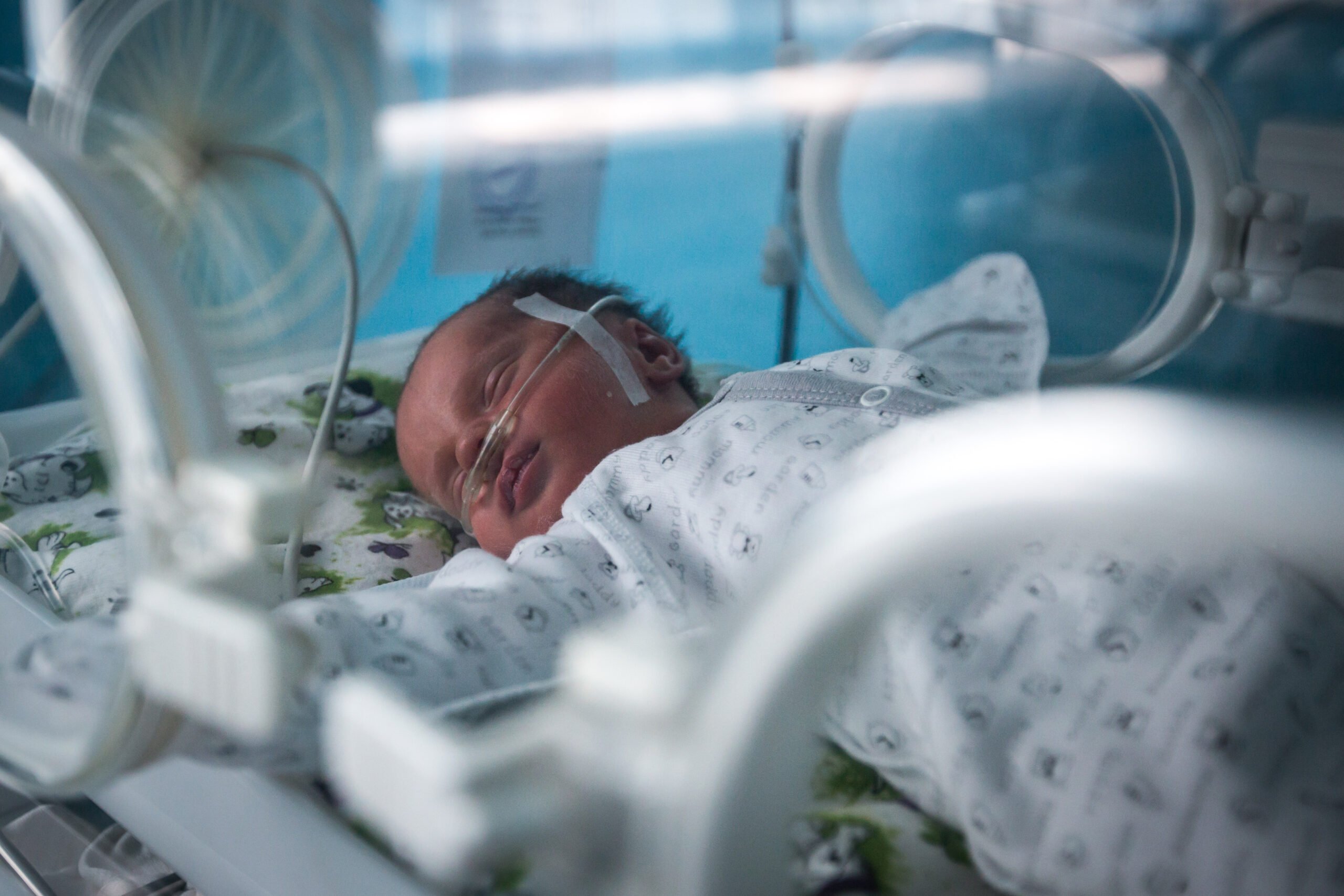
In medical science, a normal pregnancy is said to last for an estimated 40 weeks. According to the World Health Organization (WHO), any baby born before 37 weeks is considered to be premature.
Disclaimer: this post may contain affiliate links, and every purchase made through these links will give me a small commission (at absolutely no extra cost for you!) AS AN AMAZON ASSOCIATE AND REWARDSTYLE MEMBER, I EARN FROM QUALIFYING PURCHASES. See Privacy Policy for additional info.
Some are even born as early as 28 weeks known as extremely premature. In most cases, a preterm birth is related to a similar previous pregnancy or multiple babies. Certain health complications with the mother or the fetus may also lead to a premature birth.
Having a preterm infant can be an overwhelming and challenging experience for parents. It often involves extended stays at the special nursery, sleepless nights, developmental delays, and other medical needs.
For first-time parents, this news can be a lot more challenging and difficult to deal with. This article will offer some guidance in this regard. Read on to discover insightful tips for first-time parents on preparing for a preemie birth experience. If there were any siblings involved, parents would have to have a talk with them too. That would help them understand the scenario and make them less anxious, and it's a piece of advice for new parents that can make a big difference.
Before Labor and Delivery
While there are several physical preparations that must be made, it's often the emotions that are initially tough to deal with. No parent wants to hear the doctor suggest that their baby might be born preterm.
It's natural to experience a range of emotions, from sadness to anxiety and guilt, upon being conveyed the news. Your partner may experience a set of separate emotions. Just keep in mind that this is something to overcome as a team.
During the time of pregnancy itself, emotional and mental preparation is a must. Even after the doctor has disclosed the possibility of a premature birth, uncertainties may abound.
Some ways in which couples can get themselves mentally and emotionally ready for the birth include -
- Reading up relevant resources on premature birth and baby. It is best to seek the healthcare team’s support in this regard.
- Noting down any questions or concerns that may come to mind. These can be discussed with the doctor or the midwife.
- Connecting with other parents of premature babies through online groups and offline communities.
- Making oneself mentally flexible with the birth plan. For example - most women having preterm babies need to give birth in a hospital instead of a birthing center.
- Participating in muscle relaxation exercises and deep breathing to calm the mind.
- Engaging in enjoyable hobbies or activities, including painting, nature walks, etc.
- Consciously thinking positive thoughts. The mother must try picturing their baby in a positive and happy way.
- Asking for help whenever required, be it a healthcare professional, family member, or friend.
Getting Familiar with NICU or Special Care Nursery
In the case of preemies, they are kept in a neonatal intensive care unit (NICU) or a special nursery. As per Stanford Medicine Children's Health, these special nurseries have trained medical professionals and advanced equipment to extend care to little patients.
In the US, around half a million babies are born premature. Usually, doctors will not recommend taking the baby home due to health risks. They will be placed in an NICU and monitored closely until they get better.
Parents must familiarize themselves with what such a care unit would look like. Also, they can understand the different treatments the baby may require to develop healthily. This is an important preparatory step because preemies normally have a number of machines and tubes all around them.
It can be scary and overwhelming to watch at first. If the parents become familiar with the environment, it can get easier to visit the baby there. The medical team or the midwife can arrange for this to happen.
Understanding Post-Birth Options
Once the baby is born, parents may have other unique challenges to face. In other words, the mother’s body will take time to heal before she is ready to extend personal care to the baby.
The time a baby is required to stay in a NICU depends on how premature they are, their birth weight, and any health complications. For example - babies born before 32 weeks are kept in this unit for an average of 46 days.
As the mother gradually heals, parents must make some important post-birth decisions. Among the most important would be their nutrition and feeding schedule. We would like to exclusively press upon this because it may become a matter of life and death.
Yes, premature infants fed with commercial baby formulas are at risk of developing Necrotizing Enterocolitis or NEC. This is a rare yet serious health condition that affects a baby's gastrointestinal system. What essentially happens is that the intestinal tissue becomes injured or inflamed.
This may lead to a perforation that invites bacterial infection. Studies have found that this condition affects around 2% to 5% of all preterm babies. It is responsible for 8% of all NICU admissions. NEC has a high mortality rate, up to 50%.
Parents with injured preterm infants have filed a lawsuit against formula manufacturers like Abbott Laboratories and Mead Johnson. According to TorHoerman Law, their flagship products have led to NEC complications in babies.
The baby formula lawsuit is an ongoing litigation, with many parents seeking justice for their babies. We have discussed this to convey the need for choosing the right nutrition for a preemie. Parents must ideally opt for breastfeeding since that is the safest option.
In case that is not possible, the better alternative to commercial formulas would be human milk procured from milk banks. One still needs to ensure the bank’s milk production, storage, and distribution practices are safe and hygienic. Other post-birth areas to take care of include sleeping schedules, medications, allowing visitors at home, etc.
Preparing Other Family Members
If there were any siblings involved, parents would have to have a talk with them too. That would help them understand the scenario and make them less anxious.
Some children even worry that they were somehow responsible for the preterm birth. Such issues also need to be dealt with beforehand so everybody is on the same page. Since we’re focusing on first-time parents, they can skip this part.
However, the rest of the family must be on board. The couple must have a heart-to-heart talk to disclose everything the doctor has conveyed. This way, an understanding can be established for extended hospital stays, night duties, and more.
In case there are other little children in the form of cousins, they can be shown pictures of preemies. This will prepare them to embrace their brother or sister. The little ones can even be encouraged to prepare drawings or handmade gifts for the new baby.
In closing, we would like to stress that this period, though challenging, can have its silver lining. In other words, parents can choose to look to the bright side as their tiny one grows stronger each day.
It may not be a time to simply catch up on development and growth. However, there will be plenty to catch up on snuggles, memories, and kisses.







Leave a Reply